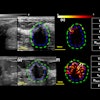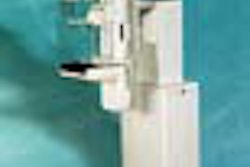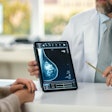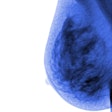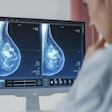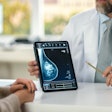GE Medical Systems achieved a major milestone today, becoming the first company to receive Food and Drug Administration approval for a digital mammography system.
The Waukesha, WI, vendor reported that the FDA has signed off on GE's premarket approval (PMA) application for its Senographe 2000D product, which uses a digital detector rather than a film-screen system to acquire images. The agency's approval brings the U.S. into line with most of the rest of the world, where Senographe 2000D is already being sold.
Breast imaging advocates have touted digital mammography as one of the biggest technology advances in the field in decades. Digital systems have better contrast resolution and dynamic range than film, and it is easier for digital images to be manipulated and transmitted to other locations. Digital systems are also better than analog systems for imaging women with dense breasts.
Despite the potential advantages of digital technology, the FDA has taken a measured approach to approving full-field digital systems, and changed its regulatory approach to the technology several times. GE competitor Trex Medical of Danbury, CT, spent years trying to navigate the FDA's approval process, only to have its 510(k) application rejected by the agency.
GE filed its PMA not long after Trex's rejection, and encountered a much easier time. The FDA placed Senographe 2000D's application under fast-track review, and the application was recommended for approval by an FDA advisory panel on Dec. 16. It's not yet clear what indications are included in the FDA's approval.
Senographe 2000D uses digital detectors made from amorphous silicon, which collects x-rays and converts them into digital data. GE has spent 13 years and more than $100 million developing the technology, according to the company.
By Brian Casey
AuntMinnie.com staff writer
January 31, 2000
Copyright © 2000 AuntMinnie.com



